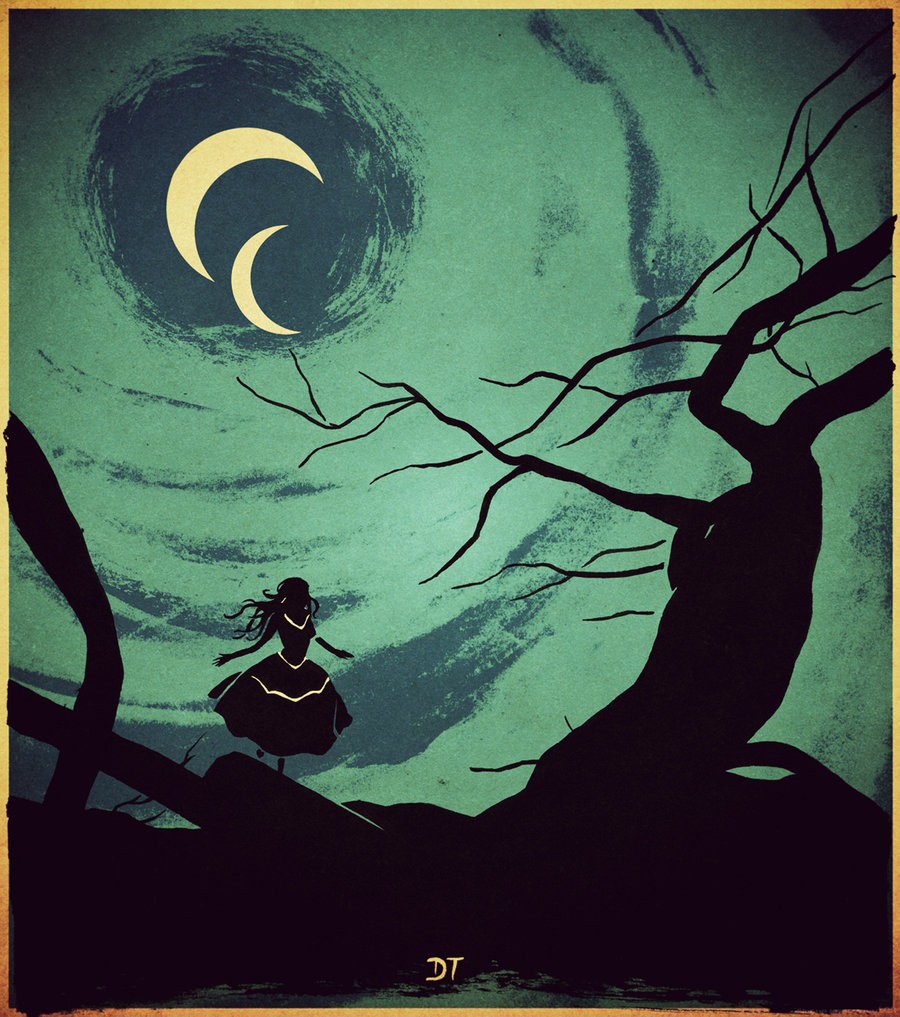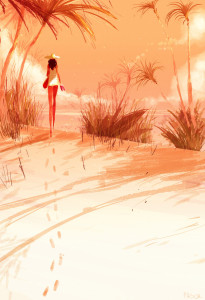The skin is the largest organ of the human body. It insulates and protects. It contains all we are. Fluids, muscles, tissues and bones, shuddering and rotating like machines beneath its thin surface. Its aspects are manifold. It regulates heat and controls excretion. We reveal it to become attractive. It leaves fingerprints as evidence. It turns into dust and disappears or replenishes itself, healing into scars.
They shared a surname now. They sat and talked, the pair of them. Noah and Alice Mosse. Talked about the household items they needed to get from the supermarket. Bleach and aluminium foil. After this they talked about the weather. The storm that was expected.
It was forecast to be the worst in over a decade and there were images and footage of old storms on the television that Noah was paying uninterrupted attention to. An hourlong special dedicated to old weather disasters of Europe, as if understanding the history of violent weather would in some way assuage any real impact of new storms. Black and white waves crashing against sea walls, grainy trees toppled into roads and flickering telephone poles swaying with the unerring force of the wind. He watched from his chair without shifting his line of vision from the screen even once.
‘They’re saying it will be bad,’ he said, eyes fixed on the footage.
‘I know,’ she said.
‘They’re saying it will be tonight.’
The house was located just beyond the outskirts of what had been highlighted as a danger zone. Too high up to be susceptible to floods, there was still an unease about the place that could not be shaken.
There was nothing to do but wait.
Outside the sky was dark and it was only early afternoon. People were scurrying across the roads with umbrellas pitted against the grey as the rain began to fall in large slow spots, darkening the pavement in abstract blemishes. He watched from the window as people jumped from their cars and disappeared into their houses, newspapers over their heads.
Noah stood on tiptoes and peered as far down the street as he could before looking at his watch, the clock on the wall, and then his watch again. His breath steamed a patch on the glass and he sat down, awkwardly raising his paper before his face.
‘Would you like another cup of tea? I’m putting the kettle on.’
He didn’t reply.
Alice looked at him.
‘She’ll be back soon’, she said.
He looked at her for a moment before returning to the Saturday newspaper that he was holding tightly on his lap.
She made the drinks and placed two cups on the coffee table that was positioned in front of the fireplace. She sat at an angle to him and picked up her book from the floor. It was a paperback romance. Her favourite way to relax and escape when she had time away from work.
Alice wanted to tell him that Mary was a grown up now. She knew how to handle herself. Some bad weather wasn’t going to infringe on her sense of the world, suck her into the sea or crash her into the side of a motorway embankment. She watched him discreetly, over the top of her novel. His foot was twitching incessantly and he hadn’t turned a page in minutes. If he took the time to speak to her more he wouldn’t get himself into this state, she thought. Mary was the eloquent, switched on, worldly person that Alice could only have dreamed of being at sixteen. She had grown from a girl who liked horses into a capable and intelligent being with views that could challenge her own.
‘Drink your tea’, she said to him.
Nothing.
After a while he stood up and walked through to the kitchen. She listened as he turned on the tap. He filled a jug with water and proceeded to journey from window sill to window sill and water the plants around the house. As he went upstairs the floorboards creaked in disharmonic give. He performed the same task in the bedrooms.
Outside the sky darkened some more and the rain got heavier, emboldened with the time that had passed since it had started.
Alice thought about Mary. She visualised her out there in the world, thriving, busy, tussling with the things that life throws at you in your teens. She visualised boys and music, shopping and coffee. They were so well accommodated for these days, everything tended to. She could not help but hark back to her own youth in the late sixties where beehive hair and large sunglasses were nothing short of eternal liberation. Freedom from the home where she would have to prepare meals for her mother and father almost nightly, and freedom from work where she stood diligently every day behind a counter of a chainstore placing everything from bottles of bleach to chocolate bars into plastic carrier bags. Those days a night at the local dancehall was enough to let off steam. The sweeping spotlights careered around and the girls would stand along one side of the dance floor, the boys along the other, both of them showing off their new, ostentatious styles. Boys these days wolf whistled, drove cars, wore low slung jeans. It was so much more aggressive, she thought. So different to the exchange of winks and the glances that could lead to a kiss goodnight.
That said, she ardently believed in the emancipation of young women so the corporate pill that had been refined over the decades was only slightly bitter in its taste.
When Mary had first returned home late after being at a ‘friends’, Susan had sat her down for a talk.
‘Contraception’, she had said.
Mary rolled her eyes and looked out of the window. Alice watched as her daughters cheeks blushed into deep pinks, giving her the right to continue with her motherly duty. She talked to Mary about how she needed to ‘be careful’, how she needed to ‘be prepared’. She watched her reactions as she said these words. Mary blinked, clenched her jaw and tears rose to her eyes. After that point they were totally open with one another. Alice would not tolerate the social boundaries that stopped people from talking. Communication was a gift to be used, not ignored or shied away from. Mary relaxed after this and they both laughed about the incident.
When they bumped into one another in town and Mary was holding hands with a boy dressed in ripped jeans and sporting dreadlocks, Alice stopped and smiled. They were going for coffee but she would be back for dinner, said Mary. Glances were exchanged between the three of them and nothing more was discussed. That particular boy never made it home, apparently not even passing enough of her daughters checks to make it to a formal introduction.
She could not help but indulge in the thoughts of her daughters emerging womanhood as she stood and washed the dishes in the kitchen. The vicarious living of another’s life, just far enough out of reach to be safe, just close enough to glean the nuances of possibility and excitement.
It was dark, and the rain had not ceased in several hours. It was lashing against the glass at the front of the house in rapid percussive staccato’s.
‘I can’t believe she is not back.’
Noah was stood at the front window again, his silhouette cutting a fuzzy outline against the grey sky.
‘I tried to call her’, he said.
This hadn’t even crossed Alice’s mind. She looked into his eyes which were wracked with concern.
‘There was no answer’.
She said nothing, looked out of the window.
‘She’s probably at a friends.’
‘I didn’t get chance to ask her’, he said. ‘She could be stuck somewhere.’
The wind was howling now and the rain drumming down on the road. It was moments later that the first flash lit up both the hollows of the living room and the crags of sky.
They were driving. The morning had broken into dark blues and the rain had stopped. Everything was coated in a layer of glistening rain. The grass, the cars, the tarmac, as though it had been impossible to absorb any of the previous night’s downpour. The car’s engine made a deep hum as they moved down the road that cut through the fields.
There had been reports on the news about the local area. Trees blocking roads and floods from burst water-mains. Noah had registered their whereabouts and so navigated accordingly. He had no specific destination that he was headed to, but wanted to cover a few of the areas that he knew Mary frequented. These were the coffee shops on Mandalay Hill, the shopping centre, the cinema.
He was angry with Alice for being so relaxed the night before. She had slept soundly while he had woken frequently, twice getting up and trying to call Mary’s phone, twice getting dead dial tones. He had stood in the doorway and watched Susans prone body rise and fall with her breathing.
‘She will be at that friend of hers’, she said, ‘the one who likes dancing’.
‘Lauren?’ He asked, brow furrowed.
‘It will have gotten too stormy and she will have stayed there.’
He gripped the wheel tight as the fields rolled past the window in deep, lush greens. He steered with the curve of the road. They turned a bend and were confronted by a block in the road. A tree had split from its base and fallen into the lane.
Noah slowed the car to a halt and got out. He examined the tree and the road. He swept his glance from the vehicle to the road, analysing the logistics of how he would get past.
‘Do you need a hand?’ Asked Alice.
‘I think we can get around it’, he replied.
Noah Mosse continued to look at the trunk. It was not so large as to be unyielding, nor was it covering the whole of the road. For good measure Noah put his back to the tree and managed to shift it a little. Just enough to ensure room enough for the saloon car to easily pull past. He returned to the drivers seat with a thin sweat across his brow.
‘I’m out of shape’, he said.
‘We can get past now’, she responded.
He steered through the gap and down the swerving road that was cut into the wind battered hillside.
Alice tried the radio, turning the knob clockwise with a click. the usual stations were either unavailable or playing filler songs that consisted of country and western and long stretches of classical concerto. Here and there a presenter would interrupt and talk about the weather, apologising for the skeletal service. As they approached the town there were more signs of destruction from the previous night. Signposts down and hedges strewn across pavements. Drainpipes had torn themselves away from the side of the public swimming pool. He slowed as he got nearer the centre. A cluster of people were gathered around an office block where windows had smashed and a layer of roofing had blown off. He got out and walked in the direction of the cinema. Alice followed. Turning a corner they were presented with an open space that was usually busy with shoppers. They stopped and looked around.
‘It’s not open’, he said.
‘She wouldn’t be here. She will be at a friends place.’
They both paused, looked around. A wall had collapsed onto two cars at the far end of the car park. A few people in bright yellow uniforms were visible walking along the far end of the space. Noah looked up at the sky.
‘Do you think it will start up again?’ He said.
‘I think they said it would calm down. On the radio, I mean.’
‘Was it Lauren? The friend you meant?’
‘It will be one of them. One of the girls she hangs around with. Lauren or Amy.’
‘Do you know where she lives?’
Alice fell silent. She made concerned eye contact with Noah.
They went back to the car. Neither of them spoke as they fastened their seatbelts and started the engine.
‘The phone lines are back up.’ He said.
‘Is she answering?’ She asked.
‘No.’
The living room felt empty. The white walls in need of a painting, the floor space in need of an extra chair.
Much of the county had been hit. There was a wrapped tangle of metal being shown on the television. Part of a bridge that had peeled away and warped into an abstract structure across a main road.
When neither Lauren nor Amy knew Mary’s whereabouts Noah’s anxiety began to look well placed. Some disappearances had nothing to do with the staged world of magic.
‘The storms came in from the Atlantic’ said the reporter as he held onto a microphone. Invisible wind blew his hair towards the left of his face.
It took under an hour for the police car to pull up outside of the house. They both watched as two officers, a man and a woman, walked up the incline of the driveway. They rung the doorbell.
‘Come in’, said Alice, unlocking the door and standing to one side. They took off their hats and held them under their arms. Noah made the tea and Alice sat with the two officials in the living room. By the time he came back through she was giving Mary’s physical description.
‘About 5ft 6, dark hair. She has a yellow jacket, like an anorak.’
He placed the cups down on the table as she went through Marys appearance. He thought about the word appearance and its opposite, and looked at the front door which was visible from his seat in the living room. The officers looked serious and the woman was writing notes on her pad.
It didn’t seem long that they were present in the house. They finished off their tea and spoke formally to them both.
‘We will do everything we can. There is still every possibility that she will come back in the next few hours. In the meantime try to get in touch with friends, family and neighbours, anywhere she might be.’ He paused and looked at them both. ‘We will get back to you as soon as we can.’
The house felt emptier after their daughters absence was made official.
Then came the waiting.
It happened in serialised stints. In the kitchen and upstairs. The two of them together and the two of them separate. They were framed by architecture much larger than them. Rafters, ceilings, and stairwells. Noah turned televisions on and off. Alice made drinks and food. Both of them returning to archetypes they had so frequently criticised.
Minutes passed slowly, then hours passed slowly, finally days passed slowly. There was nothing that wasn’t slow when a person was missing. If the word missing didn’t make sense, the word person was so anonymous it practically dug into Alice’s insides.
They spoke, one by one, to each of Mary’s friends and one by one, they replied saying that they had not seen her.
The first time they saw their daughters face on the news, they both shook as tears rose to their eyes.
Water. The rain was pelting down in thick layers from a sky dark and ominous. She trudged firmly uphill following a dirt path that was turning into mud. Brown rivulets streamed down past her drenched feet, circumnavigating stones and rocks that were deeply entrenched in the ground beneath her. She was only wearing trainers, despite the forecast, despite her better judgement. The long grasses tilted and bowed as the wind blew, eddying and gusting across the face of the hillside.
The first flash was so bright she stopped and closed her eyes for ten seconds. When the thunder crashed at a volume she had previously never experienced she opened them and moved on at a faster pace. She had never been in such exposed locale during a storm.
The lush dark greens of the trees ahead were supplemented by the lines of grey and brown that partitioned the fields. Her clothes were sticking to her body tightly, irrespective of the layers that she had on. The rain was beating down on her. Ferocious. It was punishment. It was baptismal. Impossible, she thought. It was impossible not to think about God in the face of such vast displays of weather. Either way it would cleanse her, ensure that she would shed any problems that loitered in the corners of her consciousness.
Another flash of lightning and she entered the trees. She was engulfed in darkness, had to feel her way. Branches protruding across what might still be a path. The lexicon of forests was one she would decrypt with her movements. A dance of life, a battle of wills. Nature, the unyielding force that she was pitted against out of nowhere. How she had gotten to this place she couldn’t remember.
People would say she was young, she thought. She hated being described as young. She visualised her mother who was steadfast in her refusal of platitudes.
She continued walking. Leaves mulched underfoot into umber’s and sienna’s. The sound of the storm was still colossal, though the impact somewhat less beneath the shelter of the woods. Despite being lost, she didn’t mind. It was liberating. It was love. She moved on. With the next flash of light she exited the other side of the trees and was confronted with the inalienable sensation of transcendence. The trees disappeared. The fields disappeared. She continued walking onwards engulfed in sheer light. A plight of existence that dwarfed everything she knew. The need to move onwards. To push on in resilience. Against odds and against time.
She would never stop now.
She would be forever walking.
It was years later that Alice and Noah Mosse opened up fully about the event. As though the bolt of lightning had burnt their family nerve for communication.
‘She has not aged in my mind’, she said.
‘’Nor in mine.’
‘I read up on survivors. People that have lived after being struck.’
Noah cut Alice a look of acknowledgement somewhere between consolation and empathy.
‘There are some reports of people becoming more intelligent’, she smiled, ‘or suddenly being able to play piano’.
He smiled back and watched her.
They were sat on the hillside, not too far from where the incident had happened.
‘I still type the phrase Lichtenberg Figure into the computer’, he said. ‘I dream of it too. To have something tangible to mark the event.’ He paused. ‘My whole body wracked with pain and covered in fractal scars. Mary still here with us. Mary still here.’
____
The featured image accompanying this piece has been used with the permission of artist, Diego Tripodi.
Diego Tripodi was born in 1983 in Buenos Aires, Argentina, where he lives and works.
His work can be seen at diegotripodi.com.







